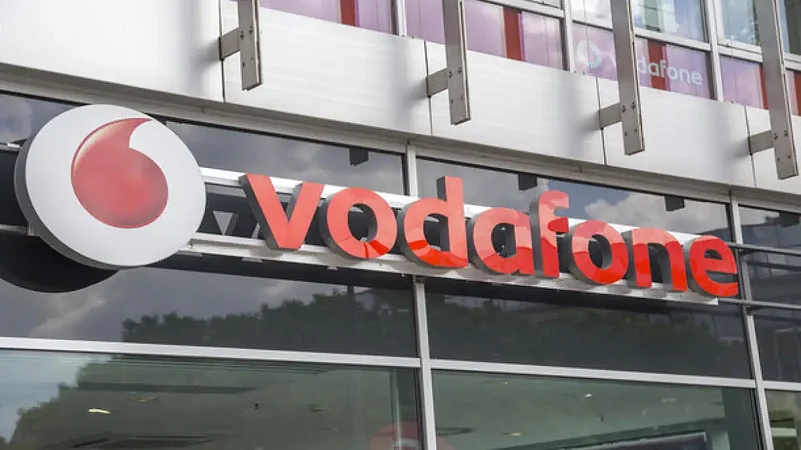Even as debt-ridden telecom operator Vodafone Idea's financial performance in the March 2022 quarter has been in line with the industry expectations, the long-pending fundraising is crucial for the company to remain competitive, say analysts.
According to a JP Morgan report, high leverage makes the value of Vodafone Idea (VIL) equity complicated and very sensitive to small changes in assumptions, thus largely unforecastable.
"We expect the value to migrate to debt holders, including the government of India, which is effectively the largest creditor via spectrum obligations including AGR dues," the report said.
VIL expects the government to complete the conversion of around Rs 16,100 crore dues into 33 per cent stake in the company in the coming weeks, a top official of the firm said.
During the company's earnings call, Vodafone Idea CEO Ravinder Takkar said as part of the telecom reforms package, the company has opted for converting government dues into equity and its proposal has been confirmed by the Department of Telecom (DoT).
Post the conversion, the government will hold a 33 per cent stake in the company while promoters' holding will come down from 74.99 per cent to 50 per cent, he said.
"We have already opted for deferment of the spectrum and AGR dues as well as the conversion of interest arising from such deferment into equity. The net present value of the interest liability on the moratorium period amounting to Rs 161.3 billion towards AGR dues and deferred spectrum liabilities has been confirmed with the DoT. With this we expect the conversion subprocess to conclude in the coming weeks," Takkar said.
JP Morgan said that the March 2022 quarter was a decent one but fundraising still remains critical for VIL's competitiveness.
"The board has approved another Rs 100 billion (Rs 10,000 crore) of fundraising and the company is in talks with investors and lenders. We believe fundraiser is critical to improving competitiveness," the report said.
VIL has reported a narrowing of its consolidated losses to Rs 6,563.1 crore for the fourth quarter ended March 2022 compared to the same period of the previous year, while its Average Revenue Per User (ARPU) improved sharply on a sequential basis aided by tariff hikes in November last year.
VIL's losses were at Rs 7,022.8 crore a year ago, according to a company filing.
Its revenue from operations rose 6.6 per cent year-on-year to Rs 10,239.5 crore in Q4 FY22. Seen sequentially, the revenue was up 5.4 per cent supported by tariff hikes effective November 25, 2021, the company said in a statement.
The realization per user measured in terms of ARPU -- a key metric for telcos -- rose to Rs 124 for the just-ended quarter from Rs 115 in the preceding three-month period. This translated into a sequential increase of 7.5 per cent in ARPU, although the company's subscriber base declined to 24.38 crore against 24.72 crore in Q3 FY22, primarily due to the tariff hike.
Takkar also said the industry needs more tariff hikes.
"We would like to see ARPU going up to Rs 200 in the short term and then further increase to Rs 250 or higher in the longer term," he said.
As of March 31, 2022, the total debt (including interest accrued but not due) of the group was Rs 1,97,878.2 crore.
The company has around Rs 8,160 crore of payments due over the next 12 months.
An IIFL Securities report said that the moratorium on government payouts until October 2025, refinancing of maturing debt bonds and recent tariff hikes provide near-term relief.
"With Rs 82 billion debt maturing in FY23, ability to step up Capex will remain under pressure unless Vi sees significant equity raise. Inadequate investments may result in continued RMS erosion. We believe that Vi is still far from being considered competitive enough to stem its RMS decline," the report said.
An Edelweiss report also said that VIL's balance sheet has been weak due to high spectrum debt, and AGR (Adjusted Gross Revenue) liabilities.
"The company has invested lesser than peers in the network which is resulting in lower 4G capacity and hence lower share of 4G customers. A weak balance sheet further impairs VI's ability to invest in the network. Hence, the company needs material tariff hike and capital raise to tide over the challenges," the report said.
VIL recently raised Rs 4,500 crore through preferential share allotment to Vodafone Plc and Aditya Birla Group and the proceeds were used to repay the payables to Indus, reduce debt and incur Capex.
"Delayed tariff hike would lead to subscriber decline for the company, which can permanently impact the ability to recover. Also, the company's inability to raise capital would negatively impact the network investments, which are crucial for garnering a proportionate share of 4G customers. Other companies investing in 5G could be a risk as well," Edelweiss report said.































